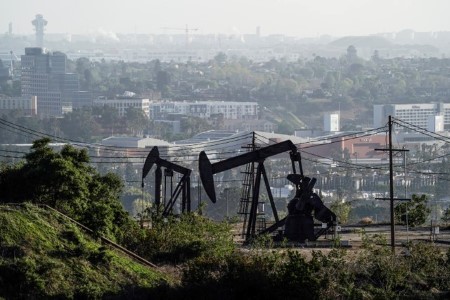




Philippines Trade Update: Imports weaken on tepid demand
 DOWNLOAD
DOWNLOAD

Policy Rate Updates: BSP outlook — cloudy with a chance of rate cut
 DOWNLOAD
DOWNLOAD

January Economic Update: Growth slows, prices rise
 DOWNLOAD
DOWNLOAD


Oil falls 2% from nearly three-week high; focus on tariffs, Russian supply

NEW YORK – Oil prices fell 2% on Tuesday, erasing gains from the previous session, as investors watched developments around US tariffs, the war in Ukraine, and the potential disruption of Russian fuel supplies.
Brent crude was down USD 1.58, or 2.3%, at USD 67.22 a barrel, a day after hitting its highest price since early August. West Texas Intermediate (WTI) crude lost USD 1.55, or about 2.4%, to USD 63.25.
“Given the huge amount of uncertainties in the oil market caused by the Ukrainian conflict and the tariff war, investors will remain unwilling to commit themselves to either direction on a prolonged basis,” said Tamas Varga, an analyst with PVM Oil Associates.
Brent prices could be bound to a trading range of USD 65-USD 74 for the foreseeable future, he added.
Oil’s rally on Monday was primarily driven by supply risks after Ukraine strikes on Russian energy infrastructure and the possibility of further US sanctions on Russian oil.
Ukraine’s attacks in response to Russia’s advances in the conflict and its pounding of Ukrainian gas and power facilities have disrupted Moscow’s oil processing and exports and created gasoline shortages in some parts of Russia.
Russia has revised up its crude oil export plan from western ports by 200,000 barrels per day in August from the initial schedule after Ukrainian drone attacks disrupted refinery operations and freed up more crude for shipment, three people familiar with the matter said.
US President Donald Trump has renewed his threat to impose sanctions on Russia if there is no progress towards a peace deal in the next two weeks.
However, sources have told Reuters that US and Russian government officials discussed several energy deals on the sidelines of this month’s negotiations to seek peace in Ukraine.
Meanwhile, Indian exports could face US duties of up to 50% – among the highest imposed by Washington.
“Front and center in this week’s trade is the possibility that US tariffs on India could be doubled to 50% as early as tomorrow … further restricting Russian export flows that are already being inhibited by recent Ukrainian attacks on Russian oil refineries,” analysts at energy advisory firm Ritterbusch and Associates said in a note.
(Reporting by Stephanie Kelly in New York, Seher Dareen in London, Anjana Anil in Bengaluru, and Emily Chow in Singapore; Editing by David Gregorio, Paul Simao, and Nia Williams)
This article originally appeared on reuters.com





 By Reuters
By Reuters